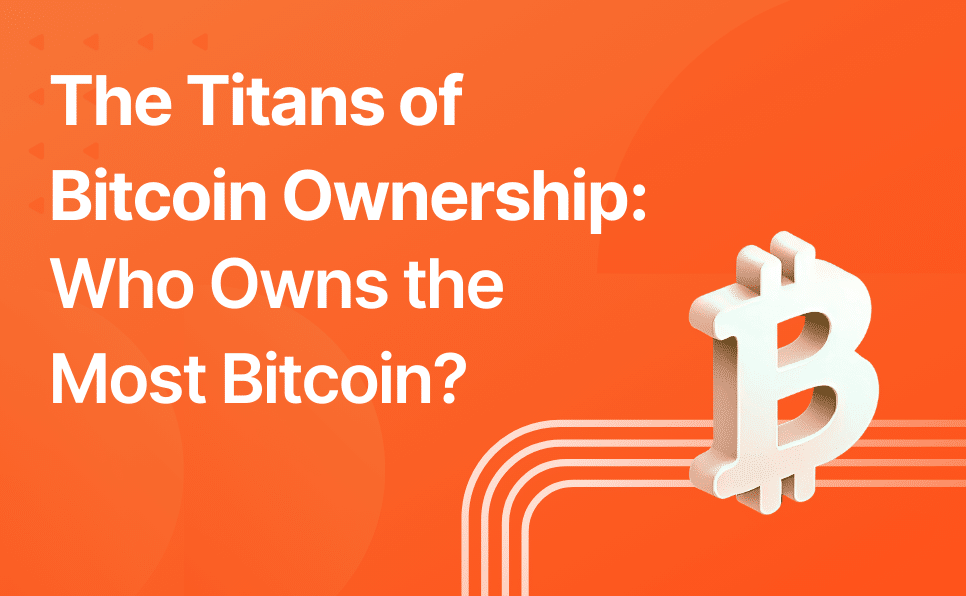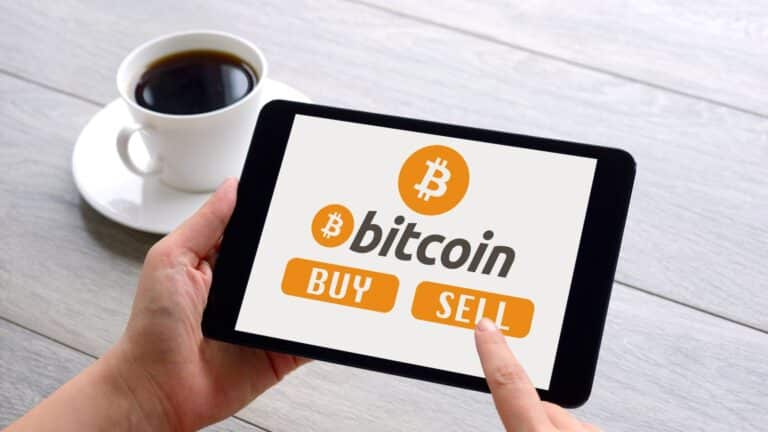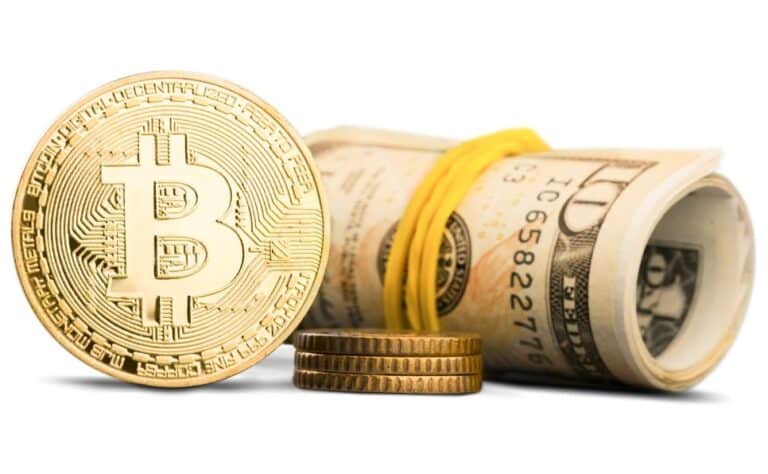Bitcoin has captured the attention of millions worldwide. But amidst the buzz, one intriguing question remains unanswered—who owns the most Bitcoin? In this post, we’ll explore the fascinating world of Bitcoin and attempt to uncover the biggest holders of this digital gold.
Who Owns the Most Bitcoin?
While the anonymity of Bitcoin makes it difficult to identify its largest holders, there are several individuals and entities widely believed to possess substantial amounts of Bitcoin, including individuals such as Satoshi Nakamoto and companies like MicroStrategy and Tesla.
Satoshi Nakamoto
The enigmatic creator of Bitcoin, Satoshi Nakamoto, is estimated to own around 1 million BTC. These coins remain untouched, adding to the mystery surrounding Nakamoto’s identity. If true, this would make Nakamoto the largest single holder of Bitcoin.
The Winklevoss Twins
Tyler and Cameron Winklevoss, known for their legal battle with Mark Zuckerberg over Facebook, are also major players in the Bitcoin world. They reportedly purchased $11 million worth of Bitcoin in 2013. Since that time, the value of Bitcoin has appreciated dramatically, transforming their initial investment into a substantial fortune. The Winklevoss twins have since become advocates for cryptocurrency, launching their own exchange platform, Gemini, and actively promoting the adoption of digital currencies as a revolutionary financial technology. Their personal bitcoin holdings are estimated to be around 70,000 BTC.
Public Companies
Several publicly traded companies have added Bitcoin to their balance sheets. MicroStrategy, led by CEO Michael Saylor, holds over 170,000 BTC, making it one of the largest corporate Bitcoin holders. Tesla, led by Elon Musk, has also made headlines with its significant Bitcoin investment. The company currently is estimated to hold around 10,500 BTC.
Which Countries Hold the Most Bitcoin?
Various countries have emerged as significant players in the world of Bitcoin, accumulating notable reserves either through direct purchases, mining, or by seizing coins involved in illicit activities.
United States
The United States holds the most Bitcoin of any country in the world. According to Forbes, the United States holds over 200,000 BTC worth over $13 billion at today’s prices. For context, that’s more than 1% of Bitcoin’s circulating supply.
El Salvador
In a groundbreaking move, El Salvador became the first country to adopt Bitcoin as legal tender in 2021. The government has since purchased significant amounts of Bitcoin and actively promotes its use within the nation to boost financial inclusion and attract investment. In March of 2024, El Salvador’s president, Nayib Bukele, revealed that the country holds 5,700 BTC.
Understanding Bitcoin’s Supply Dynamics
One of the most compelling aspects of Bitcoin is its finite supply, which differentiates it from traditional fiat currencies. Bitcoin has a maximum supply limit of 21 million coins – an intentional design feature by Satoshi Nakamoto to create scarcity and value. This cap ensures that no more than 21 million Bitcoins can ever exist, making them a deflationary asset.
Currently, the circulating supply plays a crucial role in understanding the market dynamics of Bitcoin. As of now, over 19 million Bitcoins have been mined and are in circulation. The rate at which new Bitcoins are introduced into the market is determined by the process of mining, which involves solving complex mathematical problems. Initially, miners received 50 Bitcoins for each block mined; however, this reward is halved approximately every four years in an event known as the “halving”. The most recent Bitcoin halving, which took place in April 2024, reduced the mining reward to 3.125 Bitcoins per block.
This controlled issuance process not only adds to Bitcoin’s rarity but also could influence its price over time. Understanding the intricate balance of maximum supply, circulating supply, and issuance provides valuable insights into the economics of Bitcoin and its place in the broader financial landscape.
Identifying Bitcoin Owners
Determining who owns the most Bitcoin is a complex task. Bitcoin ownership is pseudonymous, meaning addresses are not directly linked to individuals. This makes it challenging to identify the real owners behind large Bitcoin holdings.
Public addresses, or wallets, hold Bitcoin balances. However, one owner can control multiple addresses, further complicating the ownership landscape. Additionally, some large holdings belong to exchanges, where the coins are owned by numerous users, not just one entity.
Given these complexities, estimating who owns the most Bitcoin involves a combination of analyzing wallet balances, understanding market dynamics, and making educated guesses based on known data.
The Mystery of Public Addresses and Wallets
Public addresses are the visible part of Bitcoin ownership. These alphanumeric strings represent wallets that hold Bitcoin. By examining the blockchain, we can identify addresses with significant Bitcoin balances.
One such address is the “1Feex” wallet, which holds over 79,000 BTC and reportedly belongs to the Mt Gox exchange hacker. Similarly, Binance has a number of wallets with hundreds of thousands of Bitcoins that have been publicly identified.
Exchanges like Binance and Coinbase control large wallets, but these funds belong to countless users. This highlights the challenge in pinpointing individual ownership within the broader context of Bitcoin holdings.

The Impact of Large-Scale Bitcoin Ownership
Large-scale Bitcoin ownership can significantly impact the cryptocurrency market. When major holders, often referred to as “whales,” buy or sell Bitcoin, it can cause price fluctuations. This phenomenon underscores the influence of these entities on the broader Bitcoin ecosystem.
Market Stability
Whales can contribute to market stability by holding their Bitcoin long-term. Their confidence in Bitcoin’s future can inspire smaller investors, promoting a stable market environment.
Market Manipulation
Conversely, the actions of whales can also lead to market manipulation. Large sell-offs can trigger panic among investors, potentially leading to sharp price declines. This underscores the importance of monitoring whale activity.
Institutional Influence
The involvement of institutions like MicroStrategy and Tesla signals growing mainstream acceptance of Bitcoin. Their holdings enhance Bitcoin’s credibility and encourage other companies to explore cryptocurrency investments.
The Future of Bitcoin Ownership
The landscape of Bitcoin ownership is continually evolving. As more individuals and institutions enter the market, the distribution of Bitcoin holdings may become more diversified.
Decentralization and Accessibility
One of Bitcoin’s core principles is decentralization. Efforts to make Bitcoin more accessible to a broader audience align with this principle. Initiatives promoting education and user-friendly platforms can empower more people to participate in the Bitcoin ecosystem. One example of increasing accessibility is the growing network of beginner-friendly bitcoin ATMs popping up around the United States.
Regulatory Developments
Regulatory developments play a crucial role in shaping the future of Bitcoin ownership. Clear regulations can provide a stable framework for investors.
Technological Advancements
Advancements in blockchain technology and security measures continue to influence Bitcoin ownership. Enhanced privacy features, scalability solutions, and improved infrastructure can attract more users and investors to Bitcoin.
Conclusion
Bitcoin’s allure lies not only in its technological innovation but also in the intrigue surrounding its ownership. From the mysterious Satoshi Nakamoto to influential institutions, the landscape of Bitcoin ownership is a captivating blend of anonymity and speculation.
Understanding who owns the most Bitcoin offers insights into the cryptocurrency market’s dynamics and future trends. Whether you’re a seasoned crypto enthusiast or a curious newcomer, the world of Bitcoin ownership is a fascinating realm worth exploring.
Are you intrigued by the enigmatic world of Bitcoin ownership? Share your thoughts and join the conversation on RockItCoin’s X account. And if you’re ready to start your own Bitcoin journey, check out our Bitcoin ATMs, mobile app, or blog to get started today!








